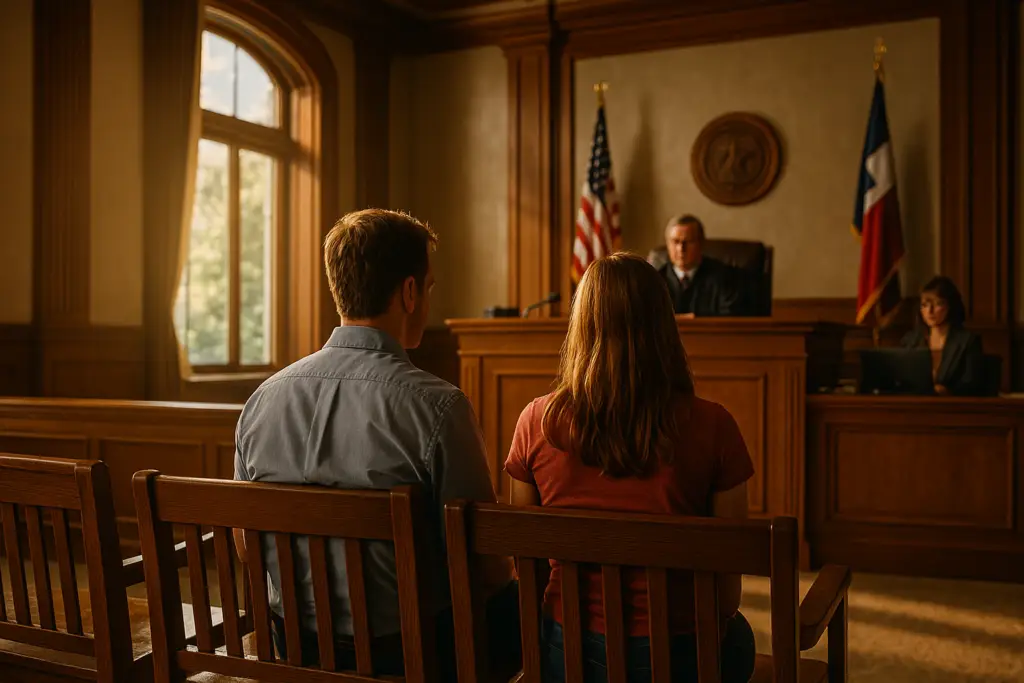What to Expect During the Divorce Prove-Up Hearing
The divorce prove-up hearing is a crucial step in finalizing your divorce in Texas. During this hearing, the judge will review the terms of your divorce agreement, including child custody, property division, and support arrangements. It is essential to understand the purpose of this hearing and prepare adequately to present your case effectively.
Typically, both parties will be required to appear before the judge, and you may need to provide documentation supporting your claims. This includes financial statements, custody arrangements, and any other relevant information. Having an experienced attorney can help you navigate this process and ensure all necessary details are addressed during the hearing.
Key Requirements for a Final Decree of Divorce in Texas
To obtain a final decree of divorce in Texas, certain legal requirements must be met. These include the proper filing of legal documents, residency requirements, and adherence to timelines set by the court. Understanding these requirements is vital to avoid delays in your divorce proceedings.
For instance, one of the primary requirements is that at least one spouse must have lived in Texas for six months prior to filing for divorce. Additionally, you must file your petition in the county where either spouse resides. Failing to meet these criteria can result in your divorce being dismissed or delayed, making it imperative to consult with a knowledgeable attorney to guide you through the process.
Common Mistakes to Avoid in the Divorce Process
Divorce can be a complex and emotional process, and mistakes can lead to unfavorable outcomes. One common mistake is failing to adequately prepare for the prove-up hearing, which can result in the judge not approving your divorce terms. It's crucial to understand what documents and evidence you need to present.
Another frequent error is not considering the long-term implications of decisions made during the divorce, such as child custody arrangements or financial settlements. Consulting with a family law attorney can help you avoid these pitfalls and ensure that your interests are protected throughout the divorce process.
Understanding Child Custody Arrangements in Texas Divorces
Child custody arrangements are often one of the most contentious aspects of divorce proceedings. In Texas, custody is determined based on the best interests of the child, which can involve various factors, including the child's age, the parents' living situations, and their ability to provide a stable environment.
Parents can negotiate custody arrangements, which may include joint custody or sole custody, depending on the circumstances. It's important to work with an attorney who understands Texas family law to ensure that your custody agreement is fair and in the best interests of your child, as well as to navigate any disputes that may arise during the process.
What to Expect During the Divorce Prove-Up Hearing
The divorce prove-up hearing is a crucial step in finalizing your divorce in Texas. During this hearing, the judge will review the terms of your divorce agreement, including child custody, property division, and support arrangements. It is essential to understand the purpose of this hearing and prepare adequately to present your case effectively.
Typically, both parties will be required to appear before the judge, and you may need to provide documentation supporting your claims. This includes financial statements, custody arrangements, and any other relevant information. Having an experienced attorney can help you navigate this process and ensure all necessary details are addressed during the hearing.
Key Requirements for a Final Decree of Divorce in Texas
To obtain a final decree of divorce in Texas, certain legal requirements must be met. These include the proper filing of legal documents, residency requirements, and adherence to timelines set by the court. Understanding these requirements is vital to avoid delays in your divorce proceedings.
For instance, one of the primary requirements is that at least one spouse must have lived in Texas for six months prior to filing for divorce. Additionally, you must file your petition in the county where either spouse resides. Failing to meet these criteria can result in your divorce being dismissed or delayed, making it imperative to consult with a knowledgeable attorney to guide you through the process.
Common Mistakes to Avoid in the Divorce Process
Divorce can be a complex and emotional process, and mistakes can lead to unfavorable outcomes. One common mistake is failing to adequately prepare for the prove-up hearing, which can result in the judge not approving your divorce terms. It's crucial to understand what documents and evidence you need to present.
Another frequent error is not considering the long-term implications of decisions made during the divorce, such as child custody arrangements or financial settlements. Consulting with a family law attorney can help you avoid these pitfalls and ensure that your interests are protected throughout the divorce process.
Understanding Child Custody Arrangements in Texas Divorces
Child custody arrangements are often one of the most contentious aspects of divorce proceedings. In Texas, custody is determined based on the best interests of the child, which can involve various factors, including the child's age, the parents' living situations, and their ability to provide a stable environment.
Parents can negotiate custody arrangements, which may include joint custody or sole custody, depending on the circumstances. It's important to work with an attorney who understands Texas family law to ensure that your custody agreement is fair and in the best interests of your child, as well as to navigate any disputes that may arise during the process.

